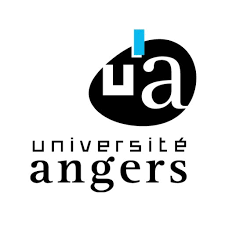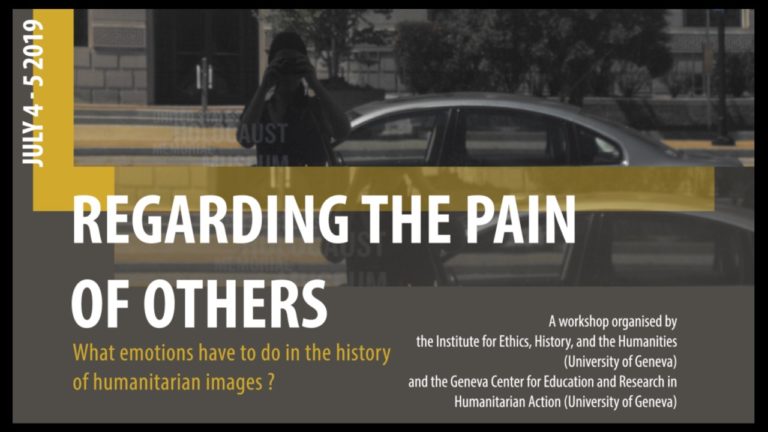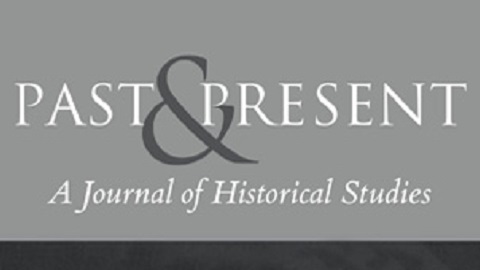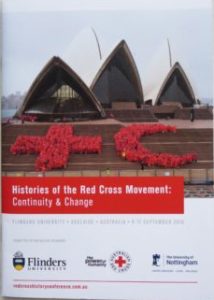The NextGen database is a user-friendly online searchable inventory of more than 500 Canadian researchers from universities, colleges, institutes, think-tanks, and civil society organizations (CSOs) working on international development and humanitarian assistance! It is part of a broader three-year collaboration. Continue reading
Tag: Humanitarianism (Page 2 of 4)

Call for Contributions: Integrating Gender in the History of Humanitarian Aid: Europe (20th – 21st century)
June 12-13, 2019 – Angers, France
Organizers:
European Commission | Horizon 2020, project GenHumChild
Project ID: 748770
Funded under: H2020 – EU.1.3.2. – Nurturing excellence by means of cross-border and cross-sector mobility
Call for proposals: H2020-MSCA-IF-2016 http://cordis.europa.eu/project/rcn/209587_en.html
TEMOS (Temps, Mondes, Sociétés – CNRS FRE 2015, Universités d’Angers, Bretagne Sud, Le Mans)
EnJeu[x] Enfance et Jeunesse
In 2017, the Inter-Agency Standing Committee (IASC) published the second edition of its guide Women, Girls, Boys and Men. Different Needs – Equal Opportunities: Gender Handbook in Humanitarian Action (2017), explaining the necessary gender approach in all humanitarian response, showing that the two fields are closer than never and marking the efforts made in this direction for the last two decades. Traditionally, while referring to
gender, the history of humanitarian aid traditionally privileged the image of women as victims. The newest scholarship is breaking with this pattern. In a first time, research recuperates the hidden stories of women in the humanitarian, and the contributions of Linda Mahood and Tarah Brookfield mark an important step in this direction. In a second
time, historians, but also political scientists, sociologists, anthropologists, are willing to explore the humanitarian aid through the gender lens. Their effort takes looking into how socially constructed practices dictated the assignment of specific roles, hierarchies, responsibilities and expectations to men and women working in the humanitarian effort,
but also how structural unequal gender roles present on the field, among the beneficiaries, undermined or even completely compromised humanitarian actions. Recent academic encounters (Gender & Humanitarianism. (Dis-)Empowering Women and Men in the Twentieth Century, 2017, Gendering Humanitarian Knowledge, 2018, L’humanitaire: nouveau champ de recherche pour l’histoire de l’Europe, 2018) and papers (Carpenter
2003, Dolan, 2014; Olivius, 2014, Jones 2013) made already important steps in this second direction. The conclusions drawn from these studies underline the confusion surrounding the term gender, but also the lack of appropriate gender related action on the field. The researchers point out the unilateral, top down, sometimes sterile perspective
humanitarians have, one that ignores the diversity of historical, geographical, cultural, political spaces, as well as local particularities that shaped, negotiated, sometimes disrupted traditional roles and gendered identities. Continue reading
Originally posted to BMJ Blogs, by Bryan Mukandi.
Regarding the Pain of Others:
What emotions have to do in the History of Humanitarian Images?
(Geneva 4-5, 2019)
Taking the title of Susan Sontag’s seminal work as a starting point, this workshop aims at re-opening an old debate about the potentialities of exhibiting other’s suffering in order to promote a culture of peace, prevent war and/or resolve conflict. Sontag concluded in her book that images of atrocities had led the Global North to a form of exhaustion, also called compassion fatigue, which has been criticised more recently as a myth. Yet, images remain today the main strategy of humanitarian organisations to raise awareness and funds. Continue reading
This past week, the journal Past & Present from Oxford University Press published a roundtable discussion on the relatively recent and rapid rise in the study of humanitarian history. The following reflects the original introduction to the discussion as published in the journal. Links to the complete article are provided below. Continue reading
by Daniel Manulak and Jean-Michel Turcotte
The Canadian Network on Humanitarian History (CNHH) convened its fifth annual workshop during the 2018 Congress of the Humanities and Social Sciences, hosted by the University of Regina. In attendance were Dominique Marshall, Jill Campbell-Miller, Sonya de Laat, Valérie Gorin, Daniel Manulak, Kiera Mitchell (Technical Assistant), Cyrus Sundar Singh, Yordanos Tesfamariam, Jean-Michel Turcotte, and David Webster. Joining the meeting by Skype were Katie-Marie McNeill, Chris Trainor, and Anne-Emmanuelle Birn.
“Besides the Primate’s World Relief and Development Fund, George Cram served a number of refugee advocacy organizations, and successfully pushed for the granting of Canadian visas to released prisoners in Chile during the rule of dictator Augusto Pinochet. Photo: General Synod Archives, from the Anglican Journal, March 20 2018”
To honour George Cramm, who died last month, we publish below the notes of the speech he gave five years ago, to commemorate a unique moment in the history of refugees in Canada which he led, the Political Prisoner Program. We also reproduce the text of the obituary prepared by the Anglican Journal, which highlights the many institutions which benefited from his commitment to ecumenical social justice. We thank his close colleague and member of the CNHH, John Foster, for sharing these documents as well as the obituary published by the Toronto Star published an obituary on March 21. John first met George via United Church youth work in 1961, and was best man at his wedding.
Notes from a talk given by George Cram about […] The Political Prisoner Program
CASA Salvador Allende 40th Anniversary Remembrance, Toronto, September 7, 2013
The Canadian Council for International Co-operation (CCIC) and the Canadian Association for the Study of International Development (CASID) are happy to announce the launch of their NextGen database and invite members of the CASID and the CNHH to join. This database can provide members of the CNHH the opportunity to promote their research on development and humanitarianism and make it visible to a wider academic community.
The NextGen database is a user-friendly online searchable inventory of more than 500 Canadian researchers from universities, colleges, institutes, think-tanks, and civil society organizations (CSOs) working on international development and humanitarian assistance! It is part of a broader three-year collaboration.
Continue reading
by Sarah Glassford
This series is being reposted in HistPhil
During the weekend of 9-11 September 2016, roughly 50 scholars, archivists, museum curators, and aid practitioners gathered at Flinders University in Adelaide, Australia to discuss the oldest and arguably most complex of the world’s major humanitarian organizations. “Histories of the Red Cross Movement: Continuity & Change” brought together representatives of more than a dozen countries in Europe, Asia, North America, and Australasia in lively discussions of Red Cross history, Red Cross archives, and the nature of humanitarianism itself. This is the first in a series of blog posts reporting and reflecting on the issues raised at the conference.
“Histories of the Red Cross Movement: Continuity & Change” drew together three thought-provoking keynote speakers from different parts of the globe: American political scientist Michael Barnett (University Professor of International Affairs and Political Science at The George Washington University’s Elliott School of International Affairs, Washington, DC), European historian Davide Rodogno (Professor and Head of the International History Department at the Graduate Institute of International Studies, Geneva), and New Zealander historian Margaret Tennant (Professor Emeritus and Honorary Research Fellow at Massey University, Palmerston North). Each took a particular approach to thinking about the nature of humanitarianism and its history, but collectively their remarks paint a picture of a research field coming into its own.
October 23-24, 2020.
In 1920 Mennonites from different ethnic and church backgrounds formed the Mennonite Central Committee (MCC) to collaboratively respond to the famine ravaging Mennonite communities in the Soviet Union (Ukraine). Over the ensuing century, MCC has grown to embrace disaster relief, development, and peacebuilding in over 60 countries around the world. MCC has been one of the most influential Mennonite organizations of the twentieth and twenty-first centuries. It has operated as a mechanism for cooperation among a wide variety of Mennonite groups, including Brethren in Christ and Amish, constructing a broad inter-Mennonite, Anabaptist identity. Yet it has also brought Mennonites into global ecumenical and interfaith partnerships.
Sonya de Laat, a PhD student in Media Studies at Western University, Research Coordinator of the Humanitarian Health Ethics Research Group at McMaster University, and member of the CNHH, has an entry entitled, “Congo Free State, 1904: Humanitarian Photographs,” as part of the online “Atlas on Humanitarianism and Human Rights” that was officially launched this month: http://wiki.ieg-mainz.de/ghra/index.php?title=Online_Atlas_on_the_History_of_Humanitarianism_and_Human_Rights. This contribution was part of her participation in last summer’s inaugural Global Humanitarianism Research Academy (http://ghra.ieg-mainz.de).









